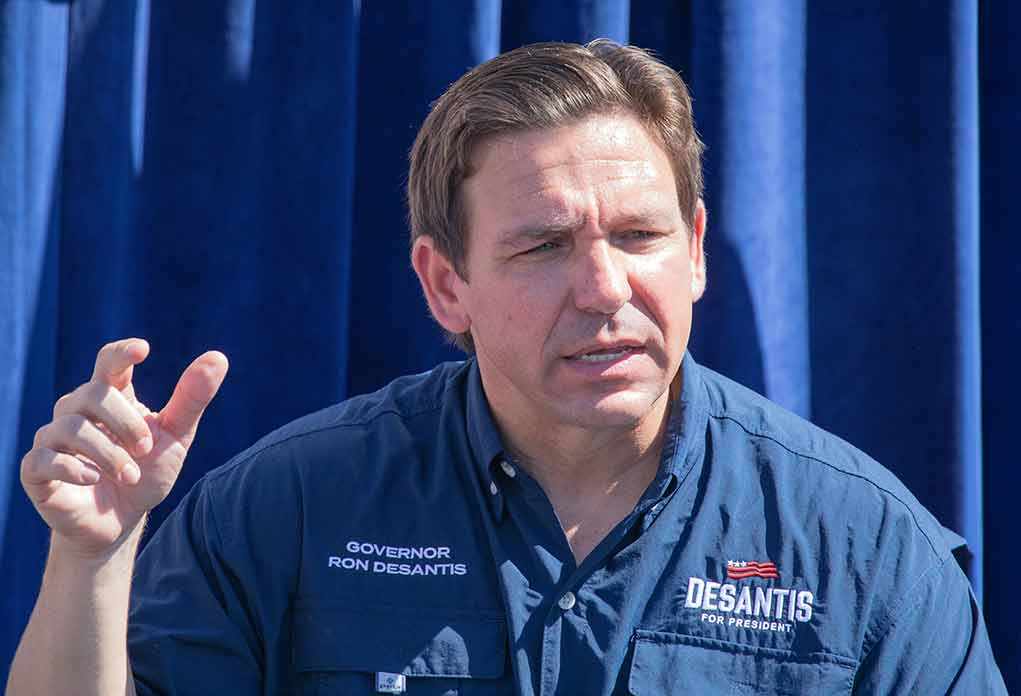
Florida has just put the rest of the nation on notice, launching a sweeping, no-holds-barred partnership with federal authorities to enforce immigration law—proving that when Washington won’t act, Florida will.
At a Glance
- Florida now leads the country in the number of law enforcement agencies participating in federal immigration enforcement through the 287(g) program.
- Governor Ron DeSantis has institutionalized immigration enforcement as a top state priority, coordinating across multiple agencies.
- “Operation Tidal Wave” marked the largest joint immigration operation in Florida’s history, with over 1,100 criminal illegal aliens arrested in a single week.
- The expansion sets a precedent for other states, sparking fierce debate over state versus federal roles in immigration and raising civil rights concerns.
Florida Goes All In: A New Era of State-Led Immigration Enforcement
Florida, under the direction of Governor Ron DeSantis, has entered the annals of immigration history by ratcheting up its partnership with Immigration and Customs Enforcement (ICE) to a level unseen anywhere else in America. The state didn’t just dip its toes in federal immigration enforcement—it cannonballed in. In 2025, Florida put nearly every major statewide law enforcement agency, from the Highway Patrol to Fish and Wildlife, into direct partnership with ICE under the 287(g) program. For those keeping score at home, that means state troopers, wildlife officers, and even the State Guard are now deputized to root out and detain illegal aliens.
This isn’t just a bureaucratic reshuffling. In May 2025, Florida executed Operation Tidal Wave—a joint operation so sweeping it led to the arrest of over 1,100 criminal aliens in a single week, the largest haul ever recorded in a single state during one week in ICE’s 22-year history. Many of those arrested were violent offenders, gang members, and fugitives, with 63% already having prior criminal convictions. If you’re tired of hearing that nothing can be done about the chaos at the border, Florida’s message is crystal clear: “Watch us.”
Unyielding State Action: DeSantis and the “Blueprint” for America
Governor DeSantis is not shy about his ambitions—he’s declared Florida the “tip of the spear” in enforcing federal immigration priorities. He’s not just talking tough; he’s institutionalized it. The recent establishment of the Office of State Immigration Enforcement and the State Immigration Enforcement Council ensures that Florida’s agencies don’t just dabble in immigration enforcement—they live and breathe it. This is not some half-hearted pilot program; these are state-mandated, cross-agency efforts, complete with new training and certification for officers who now have the authority to act as ICE agents.
Florida’s “all hands on deck” approach comes as the nation is embroiled in a border crisis so severe that even the feds have begun to admit the need for state involvement. While Washington bureaucrats dither and certain states trip over themselves to provide sanctuary to illegal immigrants, Florida has thrown its weight behind actual enforcement. The expansion comes with full-throated support from ICE, which has lauded the operational success and the removal of what they call “dangerous criminal aliens.” Florida’s blueprint is already being studied by other states eager to follow suit.
High Stakes: Impact, Criticism, and the Battle for America’s Future
With this massive expansion comes real-world consequences. The immediate effect? A surge in arrests and deportations—exactly what many law-abiding citizens have been demanding for years. Law enforcement agencies are shifting significant resources to these efforts, resulting in both operational strain and, predictably, a rise in community tensions, especially among immigrant populations who now fear any encounter with police. Critics, including the usual cast of civil rights advocates and progressive legal scholars, warn of potential due process violations and the specter of racial profiling.
But for those who see unchecked illegal immigration as an existential threat to American sovereignty, this is a price worth paying. The economic impact is already being felt, particularly in industries that rely heavily on illegal labor. Meanwhile, Florida’s move is cementing its place as a conservative stronghold with no tolerance for government overreach or federal inaction. This is the front line in the battle over who controls America’s borders: states defending their citizens and upholding the rule of law, or a federal bureaucracy paralyzed by indecision and woke posturing.
A Model for the Nation or a Flashpoint for Conflict?
Florida’s aggressive enforcement is more than just a local story—it’s a national challenge. The state’s model could spur a wave of similar efforts across the country, especially in states fed up with being left to deal with the fallout of porous borders and federal neglect. Yet, this expansion also sets up legal and constitutional showdowns, as advocacy groups are already preparing lawsuits alleging everything from due process violations to racial profiling. The courts will have their say, but for now, Florida is showing what happens when a state refuses to be a bystander.
The message is unambiguous: if the federal government won’t secure America’s borders, Florida will. And as the rest of the country watches, one thing is certain—this is only the beginning of a larger fight for the future of American immigration policy.

